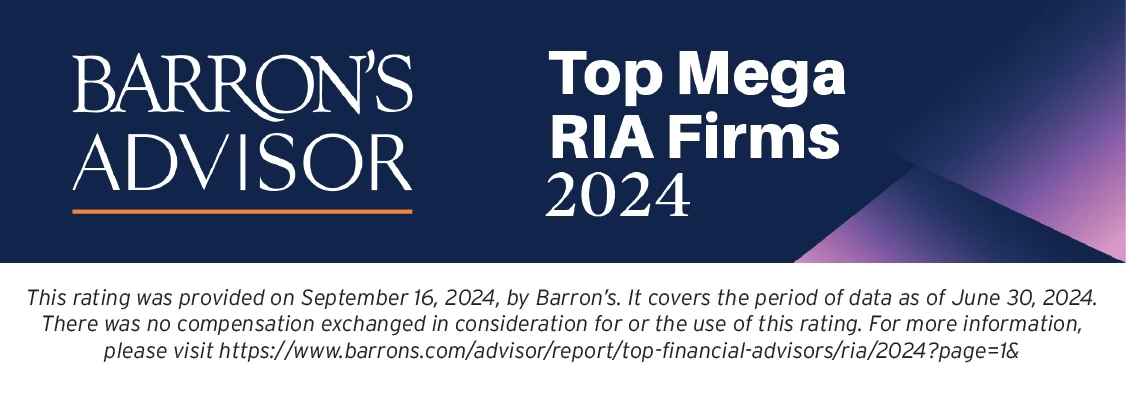Exploring the components of a trust
By Andrea Young on October 19, 2022

By Mark Carley
AEP®, CPA,PFS Director Family Wealth & Estate Planning
Historical Perspective
Trusts trace their origins to the feudal system in thirteenth-century England. The use of a trust grew out of the king granting use of his land to feudal overlords. The idea of giving to another person the legal ownership of property, not for the benefit of the recipient, but rather for the benefit of others has evolved over the centuries into what has become known as a trust. Today, the use of trusts has become an enormously popular tool in financial and estate planning, especially with the development of modern trust laws.
The Basic Elements
All trusts will generally have the following components:
- The person creating the trust, commonly known as the grantor. Other names may include settlor, donor, creator or trustor.
- The person responsible for managing the trust fund, known as the trustee, and the legal owner of the fund.
- The trust fund, which is the property the grantor transfers to the trust for the trustee to manage.
- The person(s), known as the beneficiary(s), who will benefit from the trust fund that is held and administered.
Trusts will fall into two basic categories: revocable and irrevocable. A revocable trust gives the grantor complete control over the funds held in the trust. Here, the grantor has not given anything away as he reserves the right to amend, revoke or terminate the trust at any time and thereby reclaim the funds transferred to it. This means there is no gift for transfer tax purposes and upon the grantor’s death the funds are includible in the grantor’s gross estate for estate tax purposes. With a revocable trust, any income earned on the funds flows to the grantor’s personal income tax return.
An irrevocable trust is created when the grantor does not retain the right to revoke or reclaim the property. In this case, the grantor has given away the funds transferred to the trust and there is a gift for transfer tax purposes. A gift tax return may need to be filed if the transfer is made during the grantor’s lifetime. Unlike the revocable trust, at the grantor’s death, the irrevocable trust will not be included in the grantors’ gross estate for estate tax purposes. Any income earned on the funds in the irrevocable trust is reported on an income tax return filed by the trustee. The income may flow to the grantor or may be taxed to the beneficiaries depending on the type of irrevocable trust.
Trustee(s)
The most critical decision you will make in creating a trust is who you will identify as the appropriate trustee(s) to oversee the trust property. Family, friends, advisors, institutions are typical choices most people make. Professional trustees, whether it is an accountant, attorney, financial advisor or corporate institution, can add significant managerial value by ensuring proper record keeping, adequate attention to detail and proper implementation. Family and friends should have a clear understanding of the grantor’s wishes. A combination of these choices may be the best solution. The advisors at Lexington Wealth can help you make this decision having helped many clients with it in the past.
Benefits
Historically, planners have used trusts to save taxes. The generation skipping trust is the most common transfer technique used to escape gift or estate tax. Sometimes called a “dynasty trust,” these trusts are designed to continue as long as the law allows for the benefit of the grantor’s descendants. The grantor’s children can enjoy the benefits of a dynasty trust even though the name generation skipping implies otherwise.
In addition to saving taxes, a grantor can design a trust for anything he or she desires as long as it is not illegal or against public policy. The emphasis nowadays is on wealth preservation. Clients are creating trusts to preserve assets from a variety of risks, such as, mismanagement of investments, spendthrift or wasteful beneficiaries and disabled beneficiaries. Some practitioners also argue more clients should use trusts rather than making outright bequests to family members during lifetime or at death. Again, the reason being asset protection. Please remember outright bequests to a family member can become subject to a judgement should your family member get sued by a creditor or a divorcing spouse.
At first blush, you may be reluctant to use trusts for transferring wealth because you believe it may restrict the control and beneficial enjoyment of the property left in trust. Furthermore, you don’t want to be perceived “as ruling from the grave.”
Modern trust law provides great flexibility to enable beneficiaries to obtain a high degree of control that usually only comes with outright ownership. This enjoyment can be managed by including provisions that:
- Use independent trustees that have broad discretionary powers.
- Give beneficiaries a limited power of appointment to dispose of trust property, and/or segregate the traditional trust functions into separate roles. For example, naming an administrative trustee (maybe an institution), to fulfill the traditional administrative role including maintaining records and filing tax returns, naming an investment trustee to be in charge of investments, naming a distribution trustee (maybe a professional & family member) to be empowered to make distribution decisions and a trust protector to oversee the trustee’s administration of the trust including removing trustees.
Competent legal counsel will be required to properly achieve the dual objectives of wealth preservation for future generations and flexibility found only with outright ownership.
Costs
Trust don’t come without some costs and administrative complexities. So, you must weigh the benefits outlined above with the following costs & complexities:
- Legal cost for initial document drafting, future document changes & any dispute resolution costs.
- Annual trustee and tax preparation fees.
- Administering investments and distributions in accordance with fiduciary standards beneficiaries.
Conclusion
Costs are easy to tally up and may discourage you from using a trust. However, the tax saving you may enjoy over generations and the funds that may not be depleted due to lawsuits, divorce and mismanagement can be enormous. Please contact your Lexington Wealth advisor to ask your questions about trusts.
Disclaimer
Lexington Wealth Management is a group comprised of investment professionals registered with Hightower Advisors, LLC, an SEC registered investment adviser. Some investment professionals may also be registered with Hightower Securities, LLC, member FINRA and SIPC. Advisory services are offered through Hightower Advisors, LLC. Securities are offered through Hightower Securities, LLC. All information referenced herein is from sources believed to be reliable. [Advisor Practice] and Hightower Advisors, LLC have not independently verified the accuracy or completeness of the information contained in this document. Lexington Wealth Management and Hightower Advisors, LLC or any of its affiliates make no representations or warranties, express or implied, as to the accuracy or completeness of the information or for statements or errors or omissions, or results obtained from the use of this information. Lexington Wealth Management and Hightower Advisors, LLC or any of its affiliates assume no liability for any action made or taken in reliance on or relating in any way to the information. This document and the materials contained herein were created for informational purposes only; the opinions expressed are solely those of the author(s), and do not represent those of Hightower Advisors, LLC or any of its affiliates. Lexington Wealth Management and Hightower Advisors, LLC or any of its affiliates do not provide tax or legal advice. This material was not intended or written to be used or presented to any entity as tax or legal advice. Clients are urged to consult their tax and/or legal advisor for related questions.
FYI Categories
Events Series
Lexington Wealth Management is a group comprised of investment professionals registered with Hightower Advisors, LLC, an SEC registered investment adviser. Some investment professionals may also be registered with Hightower Securities, LLC (member FINRA and SIPC). Advisory services are offered through Hightower Advisors, LLC. Securities are offered through Hightower Securities, LLC.
This is not an offer to buy or sell securities, nor should anything contained herein be construed as a recommendation or advice of any kind. Consult with an appropriately credentialed professional before making any financial, investment, tax or legal decision. No investment process is free of risk, and there is no guarantee that any investment process or investment opportunities will be profitable or suitable for all investors. Past performance is neither indicative nor a guarantee of future results. You cannot invest directly in an index.
These materials were created for informational purposes only; the opinions and positions stated are those of the author(s) and are not necessarily the official opinion or position of Hightower Advisors, LLC or its affiliates (“Hightower”). Any examples used are for illustrative purposes only and based on generic assumptions. All data or other information referenced is from sources believed to be reliable but not independently verified. Information provided is as of the date referenced and is subject to change without notice. Hightower assumes no liability for any action made or taken in reliance on or relating in any way to this information. Hightower makes no representations or warranties, express or implied, as to the accuracy or completeness of the information, for statements or errors or omissions, or results obtained from the use of this information. References to any person, organization, or the inclusion of external hyperlinks does not constitute endorsement (or guarantee of accuracy or safety) by Hightower of any such person, organization or linked website or the information, products or services contained therein.
Click here for definitions of and disclosures specific to commonly used terms.

Sign up for LWM Communication
Office
12 Waltham St
Lexington, MA 02421
Phone: (781) 860-7745
Fax: (781) 207-0253

Securities offered through Hightower Securities, LLC, Member FINRA/SIPC, Hightower Advisors, LLC is a SEC registered investment adviser. brokercheck.finra.org ©2026 Hightower Advisors. All Rights Reserved.
Legal & Privacy | Web Accessibility Policy | Our ADV
Form Client Relationship Summary ("Form CRS") is a brief summary of the brokerage and advisor services we offer.
HTA Client Relationship Summary
HTS Client Relationship Summary